Sheffield United Community Foundation at the heart of the city
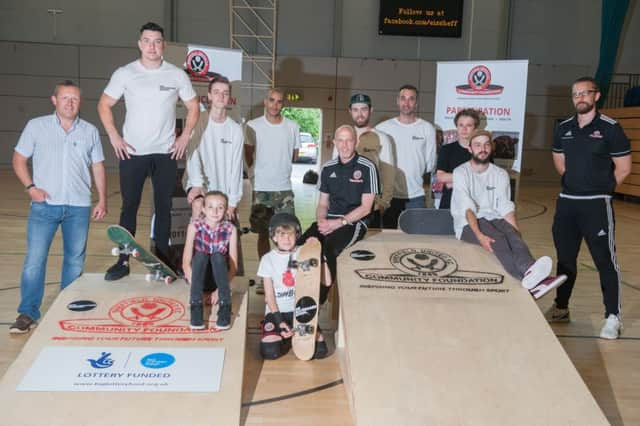

However, for one department of the club, at least, there hasn’t been a break.
Their work doesn’t end in May and kick off again in August.
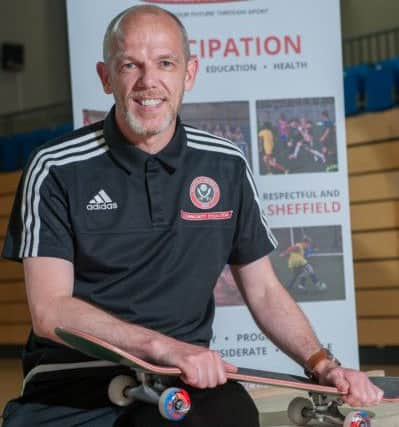

The Sheffield United Community Foundation, run by former player Mark Todd, is an almost 365-days-a-year operation, working on all aspects of life throughout the city, from morning to night.
Advertisement
Hide AdAdvertisement
Hide AdAnd while football provides the background and the means of taking their projects around Sheffield, it is now, very much, just a part of a wider series of programmes to put something back into its communities.
Mark Todd has been at United for eight years with the foundation and for the past four years has been heading it up.
The Belfast-born one-time midfielder in Dave Bassett’s United side of the late ’80s has seen a lot of change in his time working in what he describes now as ‘an industry within an industry’.
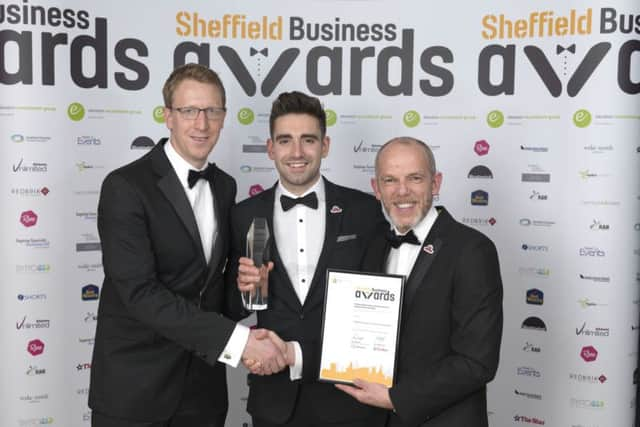

His particular journey in his ‘second career’ began at Rotherham United, where he had also been a player, with a community project that initially involved the setting up of football camps and kids clubs. Now, at Sheffield United, they have projects that can cater for almost the entire population of the city in some way.
Advertisement
Hide AdAdvertisement
Hide Ad“I have been here eight years,” says Mark. “We were a small team in 2008. On the payroll now we have 62 people.
“So you can imagine 62 people now, going out as a workforce for Sheffield United in the frame of the Community Foundation, speaking to people, engaging with people, interacting with people - it’s huge.
“Those beneficiaries run into their thousands.
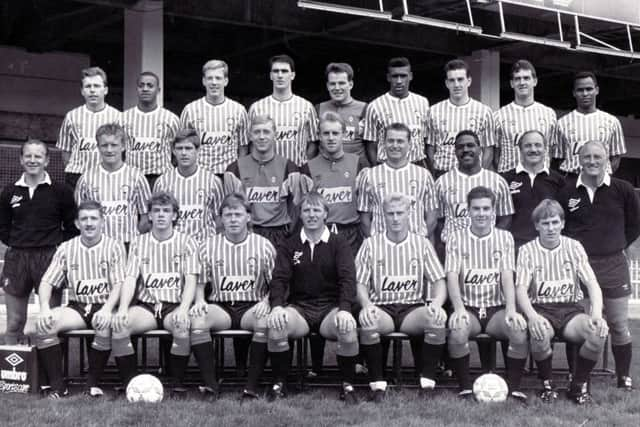

“That’s got to be a positive. Our colleagues at Sheffield Wednesday deliver, not the same programmes – we have different styles – but they work in similar ways and that’s crucial for the clubs. Yes it’s for the foundation and the club but it is, more importantly, for the city.”
People may still have a naive view of what any community foundation does, not just at Sheffield United.
Advertisement
Hide AdAdvertisement
Hide AdSome may see it purely from a footballing point of view, but as Mark goes on to explain, their reach reflects the diversity of the city.
And the core of that comes from the continual training and re-training of the workforce to branch out into the community, or by forging relationships with other projects around Sheffield. “Without straying from the strategic plan the idea is that if we can upskill our staff to do a piece of work, that’s what we will aim to do. We now have a fans fighting cancer programme. How can we fast track that? By linking in with partners who have some skills to complement our skills.
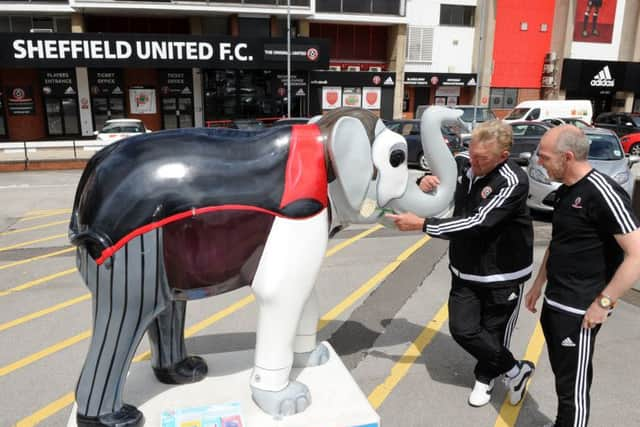

“Our ‘Fit Fans’ group is brilliant. That’s engaging with individuals who are trying to lead a more healthy active lifestyle and then they have an outcome where they can go and play in our walking football teams, because it suits the fitness levels.
“In another programme, ‘Fit Club,’ we engage with some post-natal mums.
Advertisement
Hide AdAdvertisement
Hide Ad“We also engage with a group of Muslim women in Pitsmoor - it’s just working around the city and saying ‘This is an opportunity for you to engage, that’s going to help in your education or your health, your academic achievement.’
“We are at the stage now where we are attracting that investment without having to go search for it.
“Our credibility and our stock is rising.”
That rising stock has seen the foundation pick up numerous awards for their work, the most recent coming from the Sheffield City Region for Community Contribution.


Mark says that the number of people taking advantage of the work the Community Foundation has to offer has increased by over 250% over the past few years, with 14,000 -15,000 beneficiaries and 143,000 hours of engagement, which he describes as ‘an outstanding stat’.
Advertisement
Hide AdAdvertisement
Hide AdDiversity is the key, he adds, with a new idea to provide a skateboarding project for young people at the English Institute of Sport offering a prime example of stepping outside the comfort zone.
“The skateboarding thing was out of the blue but it intrigued us.
“We have a strategic plan and an operating plan, but it’s not to say we wouldn’t be interested in doing something quirky.
“There is a lot of ‘business normal’ that used to be slightly ‘pipeline’ or new and that’s the whole point.
Advertisement
Hide AdAdvertisement
Hide Ad“Skateboarding is an evening programme engaging with communities that perhaps don’t get lots of opportunities to do new sport or sport in general or engage with their local football club. So we were intrigued by it. We are engaged with 40-odd kids already, so it’s working.”
Cynics, of course, will see this all as merely public relations for the parent club, a way of getting fans buying tickets and shirts.
There’s no getting away from the fact that ultimately what Sheffield United want is to keep people coming through the gates.
Mark said: “I hope that the cynics would look at what we do and see the vast array of projects and the diversity of our workforce and opportunities we provide. That’s the DNA of the business, but helping the football club find fans of the future and helping the academy and players of the future is crucial to how we operate.”
Advertisement
Hide AdAdvertisement
Hide AdThe man at the helm can also draw on his own experiences when working with different projects throughout Sheffield. He left strife-torn Belfast in the 1980s to join Manchester United and after failing to make the grade at Old Trafford, he moved to Sheffield United. At 28 his professional football career was over due to a serious knee injury.
“I know myself, growing up in Belfast, there weren’t many opportunities but if you have the support you can achieve. Anyone can achieve anything they want but they have to try. We insist upon that.
“We won’t go chasing and chasing. We might early on until we understand the difficulties that perhaps they face, but they have to meet us half way.
“It gives you so much happiness and the great measure of doing things right is seeing anyone develop. One of our Fit Fans group, he had a tough time with his weight. He stayed inside for a number of years so you can imagine how that was affecting his mental health.
Advertisement
Hide AdAdvertisement
Hide Ad“He came to us and lost weight and started playing walking football. We didn’t save his life but we have helped him. Those type of examples make everything worth while.”
In his own life, Mark coped with adversity. “It was difficult facing up to retirement from football,” he said. “It was all I ever wanted to do. Then I had this triple whammy - my career ended, I was going through a divorce and my mum got cancer all in the space of 18 months.
“Coming out of that and having the will...I didn’t think I was that mentally tough until I went through it.
“Only by going through that can you understand it.
“A couple of years ago I was talking to a group of cancer sufferers and people with poor mental health about what I had gone through, particularly with my mum, but with friends and family and good support. That’s how we, the foundation, are. We are there as a support mechanism to all our beneficiaries and that’s why we like to develop rather than just engage.
“Because you get to know the person and the issues and think ‘can we address those issues’ and most of the time we can.”